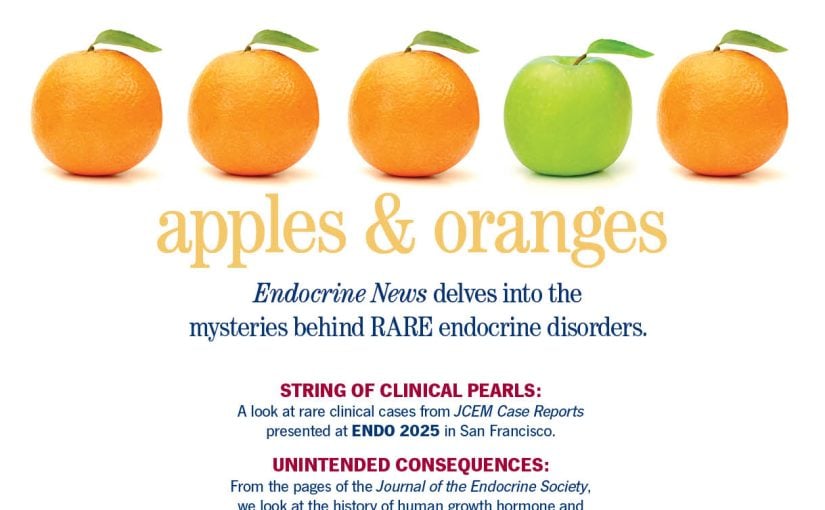Endocrine News talks with several of the early-career scientists who are participating in the Endocrine Society’s 2021 Research Experiences for Graduate and Medical Students (REGMS) program to learn more about their work in the laboratory and how the program has helped them during the early stages of their careers.
Encouraged by their principal investigators and mentors, 14 young scientists intent on exploring careers in endocrine research were awarded participation in the Endocrine Society’s 2021 Research Experiences for Graduate and Medical Students (REGMS) program — an opportunity they say has shaped their career trajectory.
REGMS, formerly known as the Summer Research Fellowship program, includes participation in collaborative research in global laboratories, dedicated mentorships, and networking opportunities that can have a tremendous impact on both the professional and personal lives for these early-career scientists.
The 2021 REGMS awardees are: Taylor Baker, PhD, graduate student Case Western Reserve University; Shruti Bendre, PhD, graduate student at the University of Illinois; Angie Chen, medical student at Northwestern University; Annapurna Chitnavis, medical student at Arizona State University; Pratyusa Das, PhD, graduate student at Southern Illinois University School; Ethiopia Getachew, medical student at Harvard Medical Student; Ashley Herdman, PhD, graduate student at University of Arkansas for Medical Sciences; Steven Hobbs, PhD, graduate student at University of Illinois; Nimisha Nandankar, PhD, graduate student at Rutgers University; Angela Olvera, medical student at University of Wisconsin-Madison; Parleen Pander, PhD, graduate student at University of Northern British Columbia; Tanya Pierre, PhD, graduate student at the University of Alabama at Birmingham; Samuel Plaska, medical student at the University of Michigan; and Kathryn Walters, PhD, graduate student at University of Colorado, Anschutz.
We spoke with most of the awardees to learn more about their research interests and thoughts on how the program has made an influence in their work.
Endocrine News: Who or what influenced you to apply for the REGMS program?
Baker: My PI, Dr. Ruth Keri, told me about the REGMS program when I started in her laboratory last January. At that point, I did not have a project or specific direction I hoped to go. However, I expressed my interest in understanding drug resistance in hormone-responsive breast cancer early on. Her involvement in the Endocrine Society and expertise in the field pointed me toward the REGMS program as an excellent opportunity to jumpstart a project encompassing my interest while also being immersed in the Society.
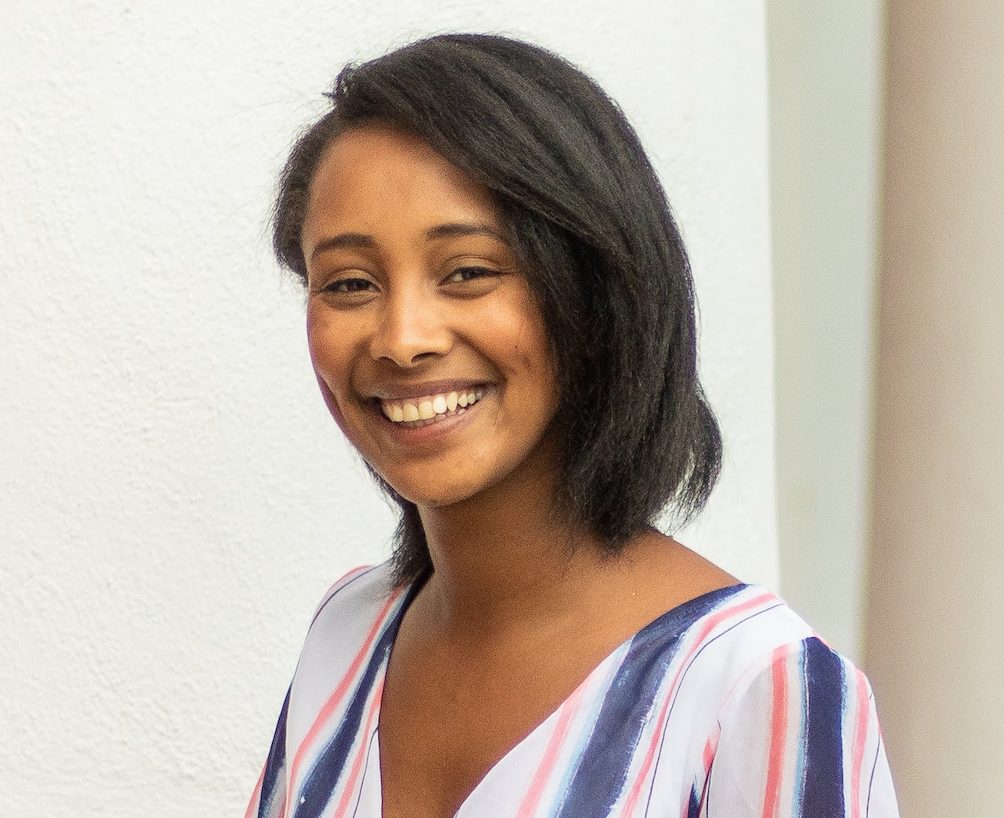
“I was excited to be even more involved with the Society while also expanding my clinical research skills. The program’s focus on early-career professional development training was another plus, as I was hoping to learn more about how I can integrate my clinical training with my burgeoning interest in research.”
Ethiopia Getachew, medical student, Harvard Medical School, Boston, Mass.
Bendre: My biggest influence was my advisor Dr. Erik Nelson. He encouraged me to apply for the REGMS fellowship. Having joined the lab just a couple months previously, he introduced me to Endocrine Society and helped me understand the importance of a professional network and enhancing professional development skills early in your career.
Chen: I applied to the program to be part of a community of students and researchers working towards discoveries in the same field. I believe that science is done best when sharing ideas with like-minded people, not to mention that it’s so inspiring to learn about others’ work.
Getachew: My PI and mentor, Dr. Elizabeth Lawson, recommended I apply for the REGMS program given my interest in endocrinology and research. I had previously attended and presented abstracts at the last two Endocrine Society conferences, so I was excited to be even more involved with the Society while also expanding my clinical research skills. The program’s focus on early-career professional development training was another plus, as I was hoping to learn more about how I can integrate my clinical training with my burgeoning interest in research.
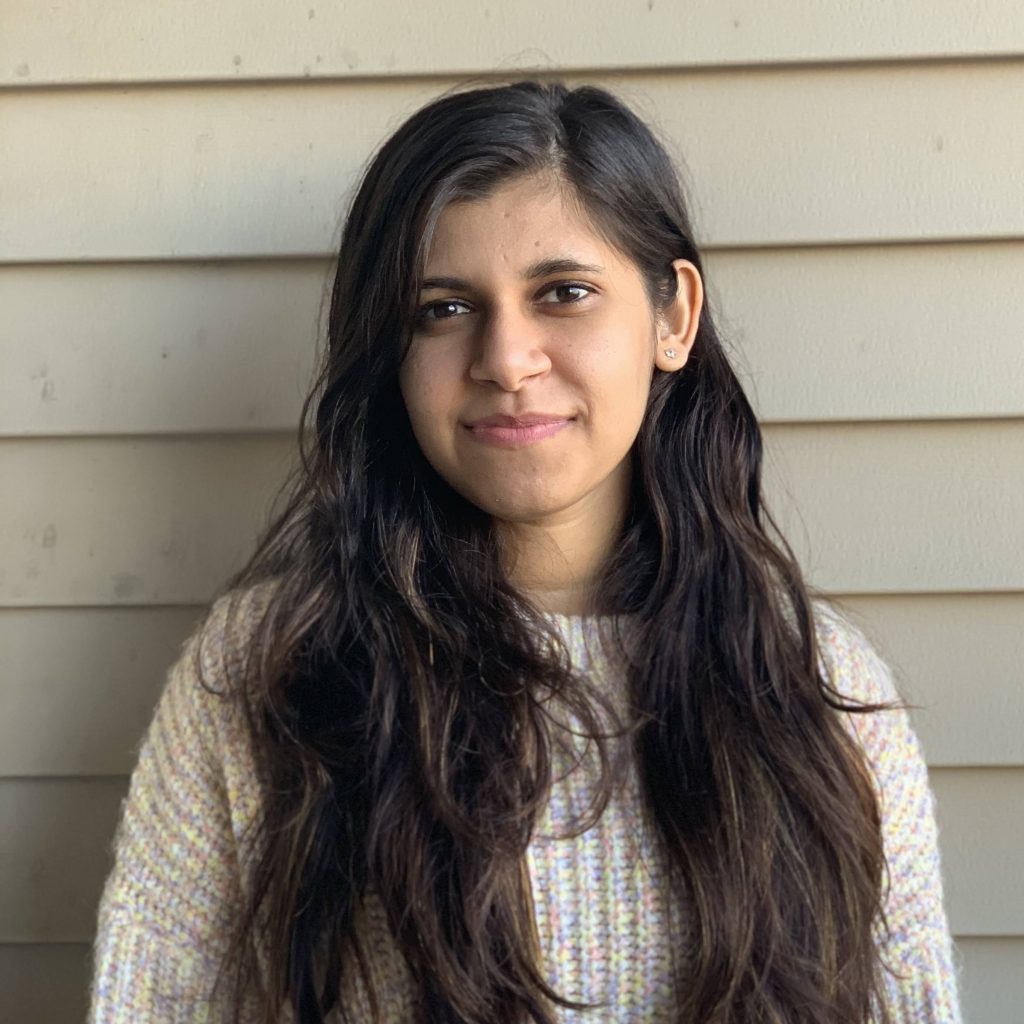
“Learning about all the trainees’ research in the spotlight seminars made me aware of the immense work going on in the field of endocrinology. The REGMS program served as a steppingstone and did a great job at introducing me to all the potential careers in endocrinology.”
Shruti Bendre, PhD, graduate student, University of Illinois, Urbana-Champaign, Ill.
Herdman: In the early spring I applied for the REGMS program after hearing about it from my mentor, Dr. Angela Odle. From the time I joined Dr. Odle’s lab, she has been extremely supportive and encouraged me to get involved with the Endocrine Society. Dr. Odle always makes time to help me learn about the field, experiment with new research ideas, and pursue professional opportunities, like the REGMS program.
Hobbs: I am fairly early in my graduate career, so I believe it is very imperative for me to seek out opportunities for me to develop as a well-rounded scientist. My PI, Dr. Sayee Anakk, is familiar with the Endocrine Society and strongly recommended I apply to the REGMS program, as it is the perfect developmental opportunity that I was seeking.
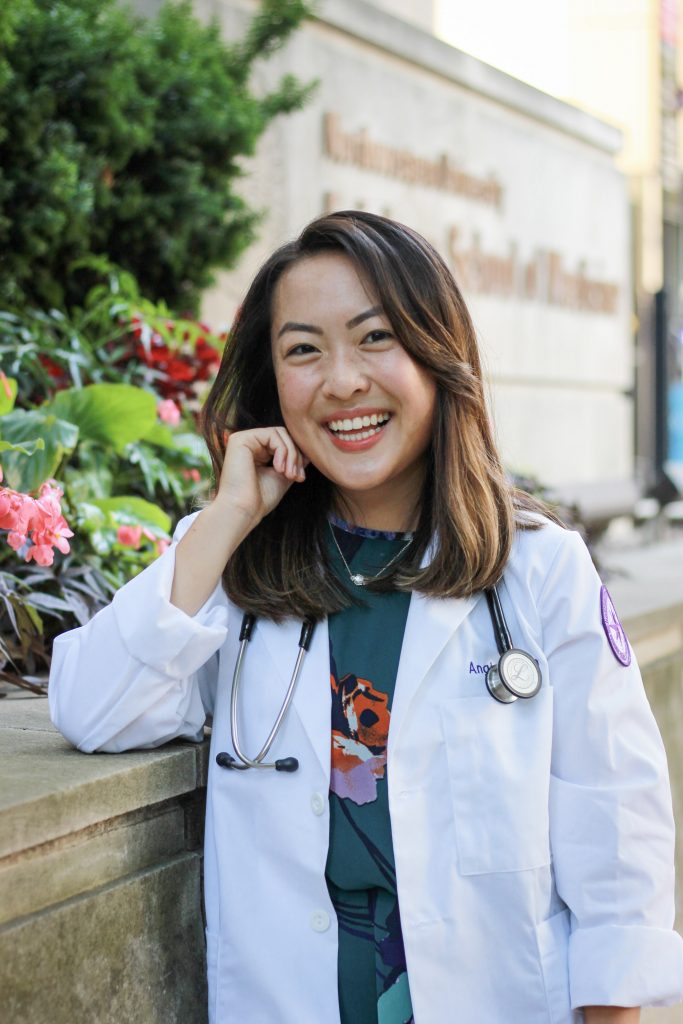
“I applied to the program to be part of a community of students and researchers working towards discoveries in the same field. I believe that science is done best when sharing ideas with like-minded people, not to mention that it’s so inspiring to learn about others’ work.”
Angie Chen, medical student, Northwestern University, Chicago, Ill.
Nandankar: I am fortunate that my mentor, Dr. Sally Radovick, consistently encourages me to pursue opportunities that further my career. I previously was intimidated at the thought of applying for prestigious awards or fellowships because of a fear of failure. Like many trainees, especially women in science, I suffered from “imposter syndrome.” It is in those moments of self-doubt that Dr. Radovick never fails to be both a reassuring voice and my inspiration as a leading female scientist.
Pandher: The REGMS program is an incredible opportunity to connect with other students and researchers, allowing me to expand and diversify my skillset as a student researcher. I felt like I was lacking the networking opportunities that come with attending in-person conferences while studying towards my graduate degree during the COVID-19 pandemic, but the REGMS program and its virtual nature allowed me to make meaningful connections with others in the endocrine field that I otherwise would not have been able to. My biggest influence in applying for the REGMS program was my graduate supervisor, Dr. Sarah Gray. Throughout my studies, Dr. Gray has pushed me to expand my critical thinking and research skills, and she encouraged me to apply for this prestigious international award. Dr. Gray is a talented scientist and mentor who serves as a role model for me as a female researcher in endocrine physiology, and with her guidance and support in my application, I was fortunate enough to receive a place in the REGMS program.
Plaska: Between my first and second year of medical school, I was motivated to find opportunities for research and specifically a program that could help develop my professional skills at the same time. I discovered the REGMS program and was drawn to the ability to perform research and attend seminars to help build my professional career outside of medicine. Dr. Rainey, the principal investigator, and my mentor helped me refine ideas for a project for the summer, grow as a researcher, and ultimately give me the confidence to apply for the REGMS program.
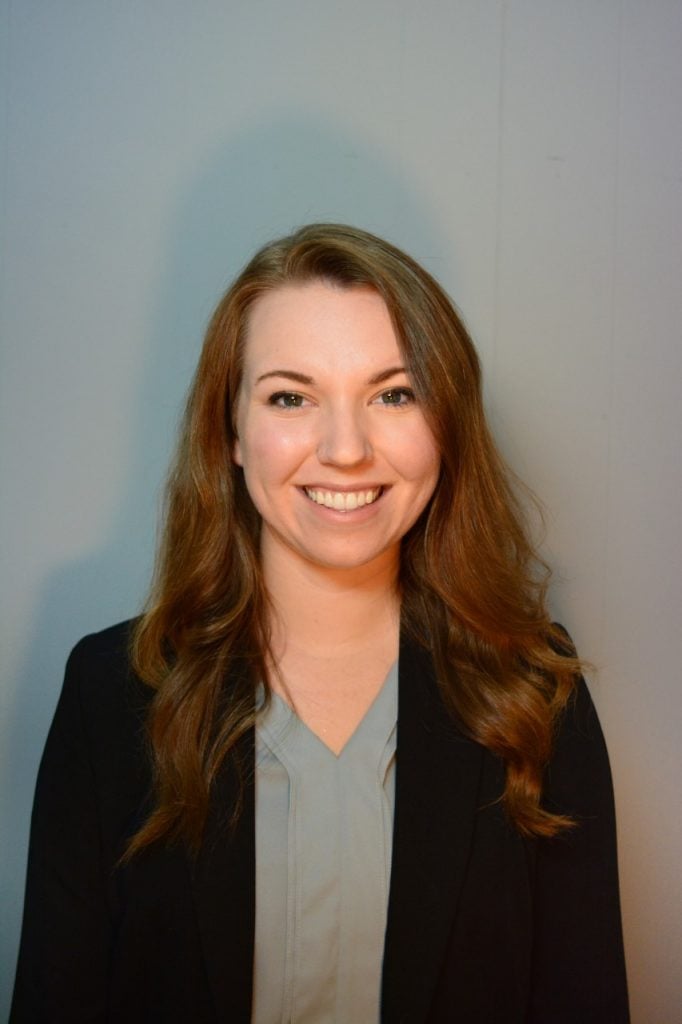
“The Endocrine Society scientists and physicians who worked with us over the summer went out of their way to help us navigate scientific communication and networking in the virtual age. This provided me with new insight and direction, and really speaks to the commitment those in our field have for mentoring young scientists.”
Ashley Herdman, PhD, graduate student, University of Arkansas for Medical Sciences, Little Rock, Ark.
Pierre: I was encouraged to apply by both my mentor and my lab sister. Once I read the program description, I was further motivated to apply because of the career forum.
Walters: My graduate advisor is a member of the Endocrine Society and has encouraged me to be involved. He passed on the information about the program to me as a way to be involved in the Endocrine Society and meet other students who also have similar interests. The pandemic has made it very difficult to meet others in the field and this program seemed like a perfect opportunity to build a network in the endocrinology community. Both my current research advisor and undergraduate research advisor have been tremendous influences on my interest in endocrinology.
EN: Can you briefly describe your research work?
Baker: My work investigates mechanisms of resistance in tamoxifen- and palbociclib-resistant luminal A breast cancer cell lines. Both tamoxifen and palbociclib disrupt the G1 phase of the cell cycle, and I am investigating if resistant cells display other weaknesses of the cell cycle that are targetable by various small molecule inhibitors.
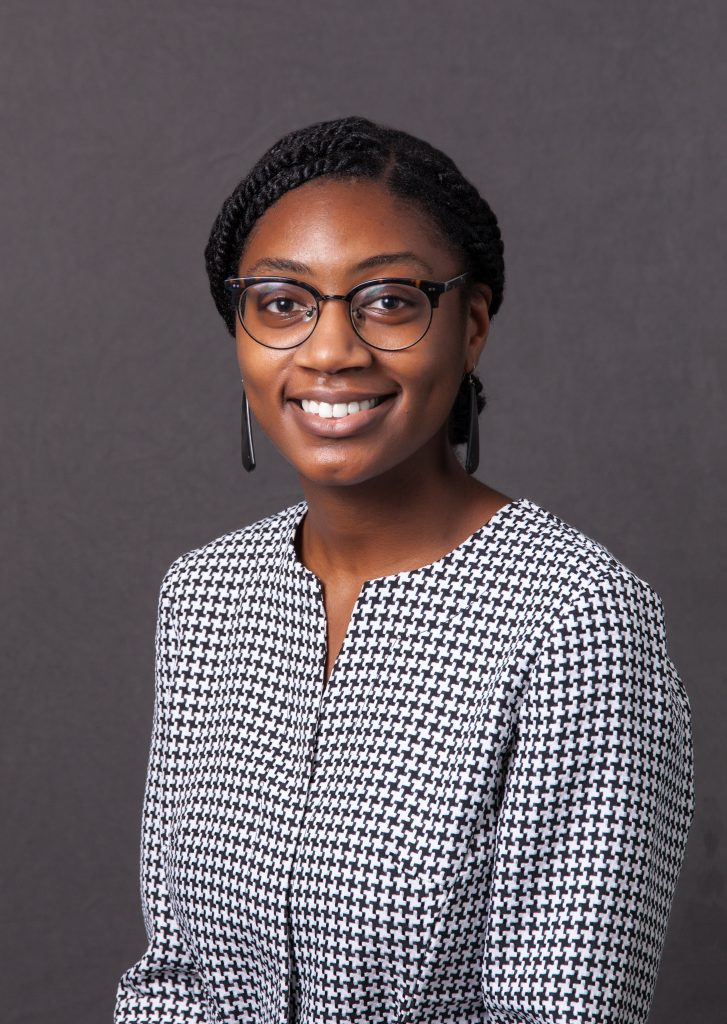
“Of all the program elements, I think I benefited the most from the advice provided by the diverse group of program mentors. I enjoyed receiving guidance about dealing with the stressors of graduate school, networking jitters, and life in academia versus industry from people with different backgrounds and perspectives.”
Tanya Pierre, PhD, graduate student, University of Alabama at Birmingham, Birmingham, Ala.
Bendre: Our lab focuses on studying metastatic breast cancer. Our goal is to elucidate the effects of metabolites and the endocrine system on cancer progression and metastasis. We have found that cholesterol metabolism plays a critical role in tumor progression by impacting the immune cells found in the tumor microenvironment. My research work focuses on studying how cholesterol and its metabolites affect tumor progression and impact cancer metastasis. Our final goal is to develop novel immunotherapeutics against cancer progression.
Chen: Polycystic ovary syndrome (PCOS) affects approximately 1 in 10 females of childbearing age in the U.S. However, there is still a significant challenge in diagnosing PCOS due to the varying clinical presentations in patients of different demographics and weight categories. This results in delayed diagnosis and overall patient dissatisfaction. We hypothesize that there is more than one biological mechanism that can cause PCOS, and understanding those mechanisms is key to improving diagnosis and treatment for millions of affected women in the U.S. My project is a multi-site, retrospective study investigating clinical and hormonal phenotypes in lean versus obese girls at the time of diagnosis, ultimately contributing to better understanding of the mechanisms underlying PCOS.
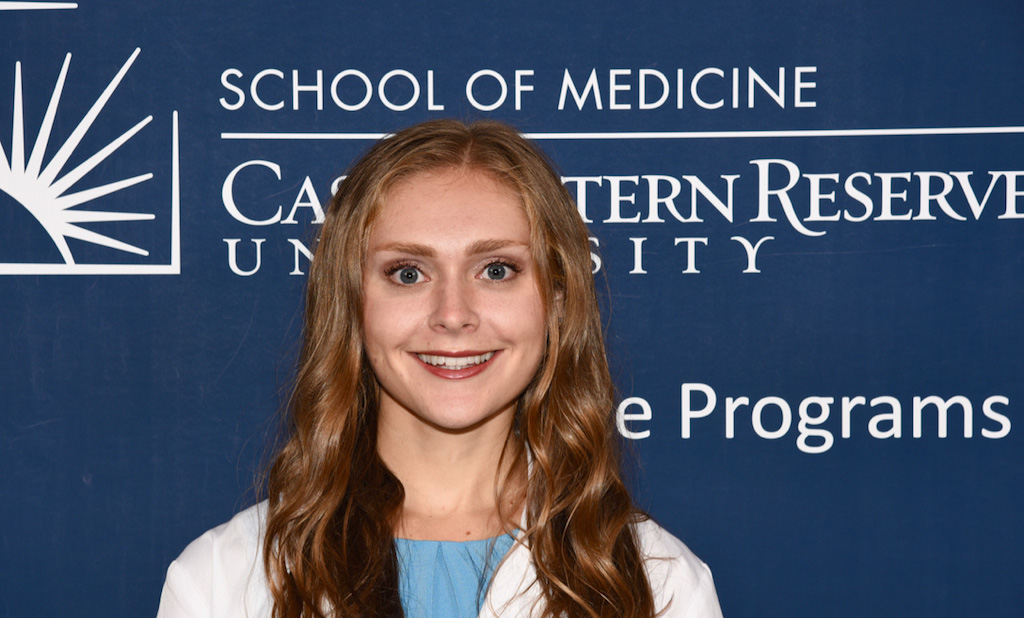
“My involvement in the REGMS program provided me with a unique opportunity to network with and learn from various members of the Endocrine Society across the nation, strengthening my connection to scientists outside of Case Western Reserve University.”
Taylor Baker, PhD, graduate student, Case Western Reserve University, Cleveland, Ohio
Herdman: I’m currently studying gonadotrope cellular networks and the potential role of leptin in facilitating these connections. We have a new model that allows us to use calcium imaging to observe and analyze the effect of different drugs, including leptin, on gonadotrope activity both individually and at the population level. We plan to use this technique to study the developmental regulation of this network and define some of the pathways involved.
Hobbs: I work on elucidating the mechanisms of the scaffold protein, IQGAP1, in liver proliferation.
Getachew: This summer my research focused on understanding sex differences in the neurobiology of avoidant/restrictive food intake disorder (ARFID) in children and adolescents. ARFID is an eating disorder that is characterized by low interest in feeding, fear of aversive consequences related to food intake (e.g., choking and vomiting), and avoidance based on sensory characteristics. Primarily, I looked at the role of appetite-regulating hormones and brain circuitry on sex differences. Based on prior data on sex differences and the currently understood neurobiological underpinnings of ARFID, I studied the orexigenic hormone Ghrelin and anorexigenic hormones Peptide YY and Cholecystokinin. For the brain circuitry, I studied blood-oxygen-level-dependent (BOLD) activation in response to visual food stimuli in the right hippocampus, lateral prefrontal cortex, and orbitofrontal cortex through an established fMRI food paradigm.
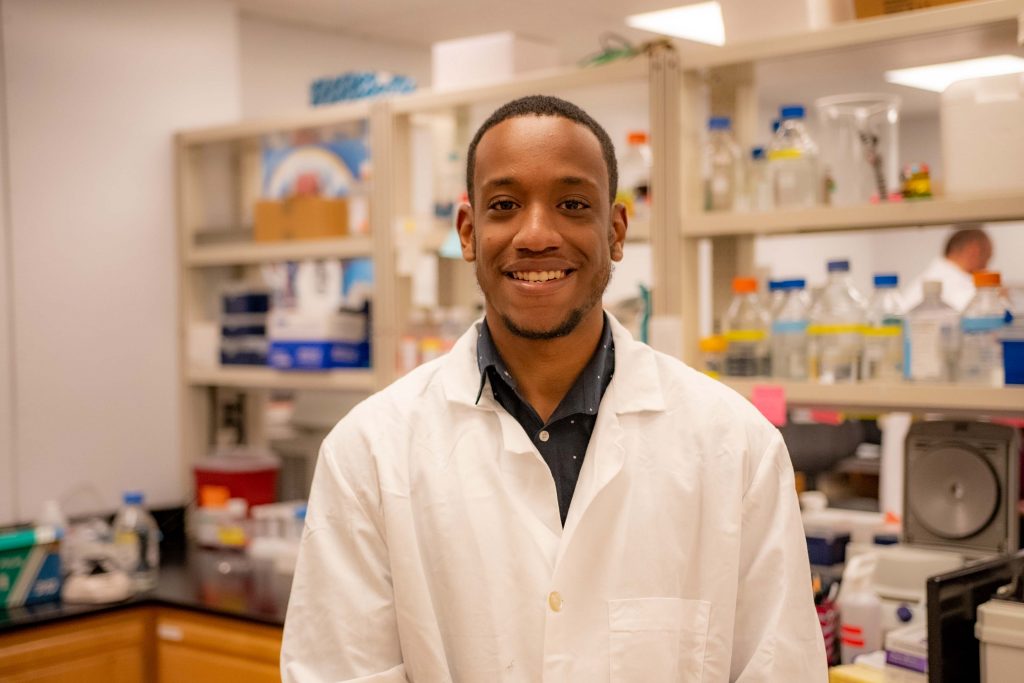
“I am fairly early in my graduate career, so I believe it is very imperative for me to seek out opportunities for me to develop as a well-rounded scientist.”
Steven Hobbs, PhD, graduate student, University of Illinois, Urbana-Champaign, Ill.
Nandankar: My research primarily focuses on understanding the reproductive and metabolic functions of kisspeptin neurons in the arcuate nucleus of the hypothalamus. This population of neurons is a potent regulator of the hypothalamic-pituitary-gonad axis and has been implicated in human disorders such as hypogonadotropic hypogonadism, infertility, and amenorrhea. Earlier this year, I published a first author manuscript that describes the phenotype of our novel transgenic mouse model that bears a conditional deletion of kisspeptin in these neurons.
Pandher: The Gray lab studies a hormone called pituitary adenylate cyclase-activating polypeptide (PACAP), which is a highly conserved neuropeptide that has been shown to be important in the regulation of the stress response, including regulation of energy balance under metabolic stress. Specifically, PACAP is shown to regulate thermogenesis, an energy burning process regulated by the sympathetic nervous system. My research focusses on characterizing the presence of PACAP and its receptors at the ganglia innervating brown adipose tissue, the main thermogenic organ in mammals. While part of the REGMS program this past summer, I was able to detect PACAP receptor expression in these ganglia.
Pierre: My project is focused on elucidating the role of an epigenetic modifier in pancreatic beta cell development and function.
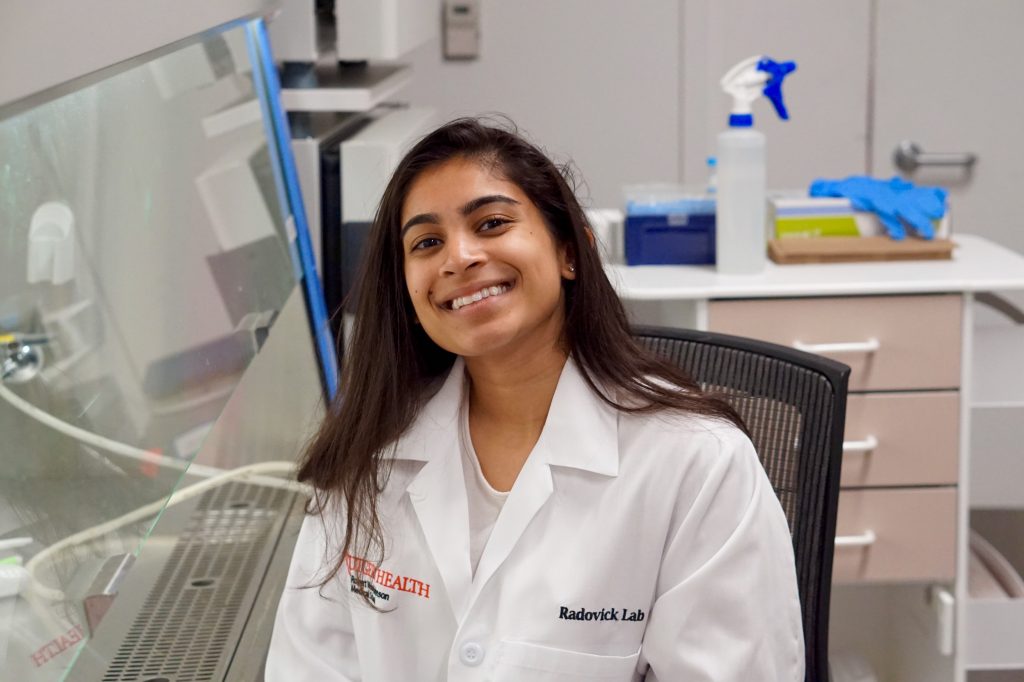
“With all the opportunities I have been given through this award, the strong emphasis on networking with individuals in the field of endocrinology was the most beneficial one.”
Nimisha Nandankar, PhD, graduate student, Rutgers University, New Brunswick, N.J.
Plaska: This summer we studied the genetic control of aldosterone synthase (CYP11B2) expression in the zona glomerulosa of the adrenal gland. We utilized immunofluorescence to assess whether LEF1, a transcription factor that helps signal as part of the Wnt/CTNNB1 pathway, is actively signaling in the same cells that express CYP11B2. We characterized this relationship by capturing images of LEF1 fluoresce in the nucleus of zona glomerulosa cells that highly express CYP11B2 and compared LEF1 fluorescence in zona glomerulosa cells that lowly express CYP11B2. Interestingly, qualitative LEF1 expression on fluorescence was relatively similar and this was confirmed with quantitative polymerase chain reaction between samples of high CYP11B2 and low CYP11B2 expression.
Walters: I study how RNA binding proteins regulate adrenal steroidogenesis. Specifically, I am studying a protein called Musashi-2 which seems to promote aldosterone production.
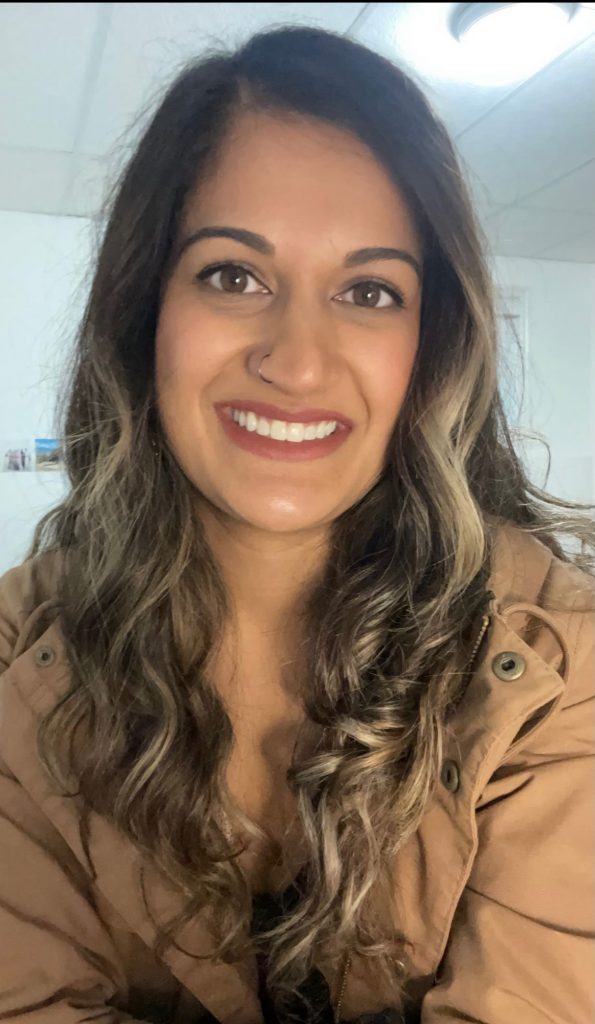
“I feel that I have gained skills in mentorship, learned how to advocate for myself as a researcher, and learned how to balance my personal life and mental health with an eventful career in research.”
Parleen Pander, PhD, graduate student, University of Northern British Columbia, Prince George, British Columbia
EN: What about your participation in REGMS has benefited you most?
Chen: The program provided me the tools and role-modeling to present my research in a more engaging manner. The educational webinars taught me to be a better mentee and even inspired me to continue working towards a career in endocrinology.
Baker: My involvement in the REGMS program provided me with a unique opportunity to network with and learn from various members of the Endocrine Society across the nation, strengthening my connection to scientists outside of Case Western Reserve University. I have been implementing their advice and life lessons early on in my career in endocrinology and breast cancer research, and I am excited to continue growing as a scientist within the Endocrine Society.
Bendre: With the help of REGMS fellowship, I was able to work towards the primary aims of my project that will form the basis of my PhD thesis. Apart from the unique experience in lab, the seminar series included in the REGMS program helped me gain invaluable insight into aspects of networking and communication. The webinar on how to choose a good mentor and be a good mentee helped me gain insightful knowledge and understand perspectives from both sides of the table. The tips on managing work life balance to avoid exhaustion given during the talk on COVID-19 resilience and perspectives, were invaluable. Learning about all the trainees’ research in the spotlight seminars made me aware of the immense work going on in the field of endocrinology. The REGMS program served as a steppingstone and did a great job at introducing me to all the potential careers in endocrinology.
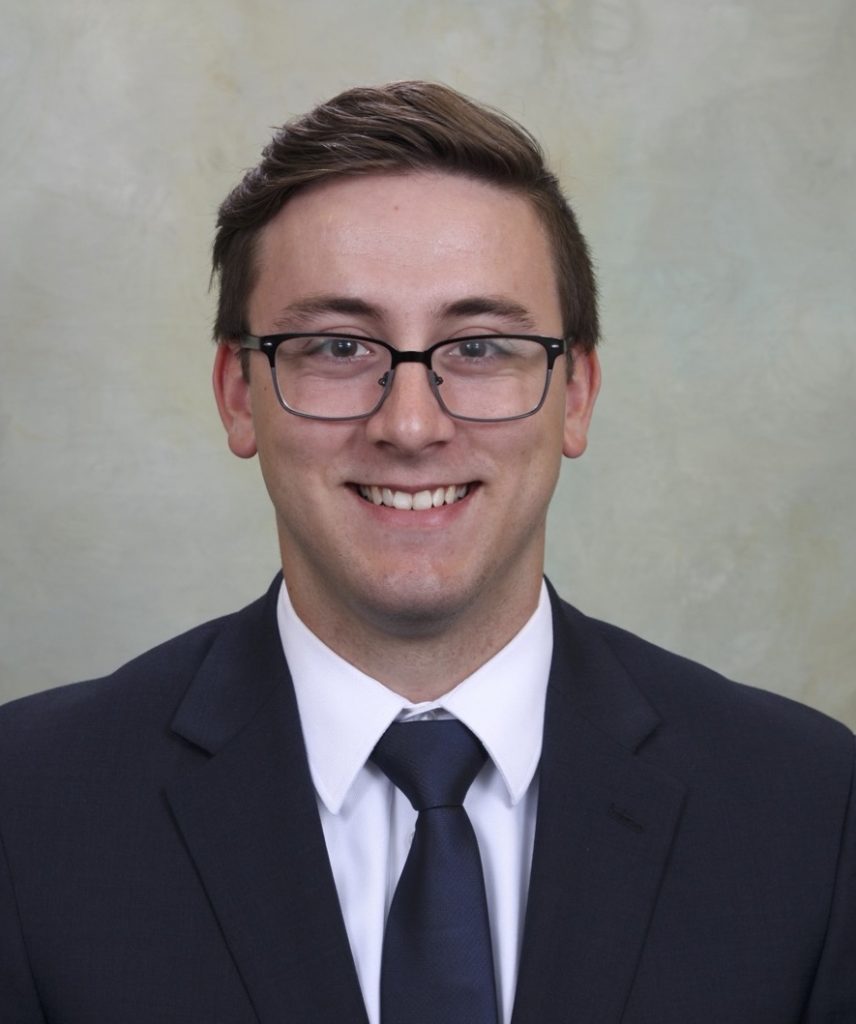
“I believe understanding mentorship and how to find good mentorship has been extremely beneficial as I grow and develop my medical career.”
Samuel Plaska, medical student at the University of Michigan, Ann Arbor, Mich.
Herdman: The most helpful part of the program has been the career building and networking opportunities. I graduated college and began graduate school during the pandemic, which has made forming professional connections difficult. The Endocrine Society scientists and physicians who worked with us over the summer went out of their way to help us navigate scientific communication and networking in the virtual age. This provided me with new insight and direction, and really speaks to the commitment those in our field have for mentoring young scientists.
Hobbs: The aspect of REGMS that benefited me the most is the seminars. The seminars were very informative, as they gave much advice on how to set yourself up for success in a scientific career.
Getachew: REGMS allowed me to have dedicated time to explore my research interests and learn about different research methodologies and statistical analysis. It was an extra special experience because my coursework at Harvard Medical School this summer covered endocrinology, GI, and neurology, which coincided well with my research interest in neuroendocrine and eating behavior. I was able to integrate the knowledge I was gaining from my coursework with the latest literature in the field and my own investigations into appetite-regulating hormones and brain circuitry.
Nandankar: The REGMS award means so much to me because it is the first award I have received since beginning my graduate studies. I was excited by the unique structure of the award. However, with all the opportunities I have been given through this award, the strong emphasis on networking with individuals in the field of endocrinology was the most beneficial one. As an early-career trainee, connecting with professionals and peers seemed daunting at first glance. However, through the encouragement and opportunities to meet these individuals by the REGMS program leaders, it has been surprisingly easy to establish these interpersonal relationships. Now, I am eager to continue developing both these skills and the relationships I have fostered through the program.
Pandher: The program relieved some of the financial burden from of my studies and allowed me to focus on my research this past summer, and for that I am very grateful. I thoroughly enjoyed hearing from the many wonderful speakers during the webinars. I feel that I have gained skills in mentorship, learned how to advocate for myself as a researcher, and learned how to balance my personal life and mental health with an eventful career in research. From the many honest personal accounts shared by each of the speakers during the webinars, I feel inspired to continue a career in endocrine research.
Pierre: Of all the program elements, I think I benefited the most from the advice provided by the diverse group of program mentors. I enjoyed receiving guidance about dealing with the stressors of graduate school, networking jitters, and life in academia versus industry from people with different backgrounds and perspectives.
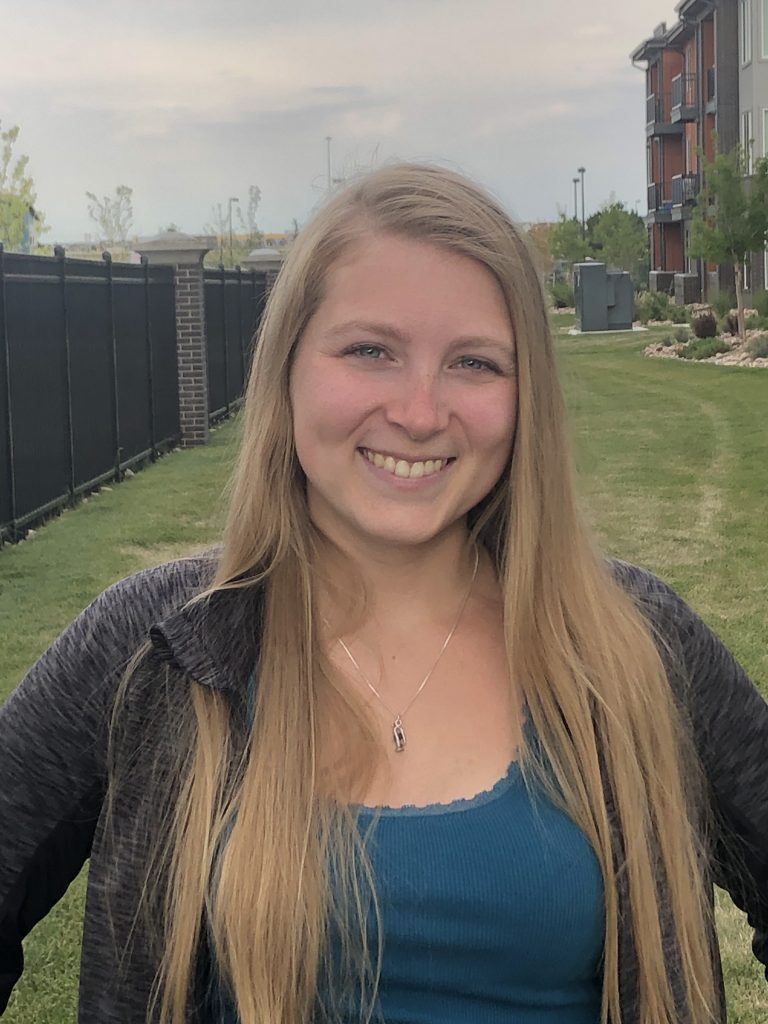
“The pandemic has made it very difficult to meet others in the field and this program seemed like a perfect opportunity to build a network in the endocrinology community.”
Kathryn Walters, PhD, graduate student, University of Colorado, Anschutz, Aurora, Colo.
Plaska: The REGMS program has provided webinars and learning opportunities that have given me skills that I now utilize to increase my involvement around my medical school and in extracurriculars that will aid in my future endeavors as a physician. I believe understanding mentorship and how to find good mentorship has been extremely beneficial as I grow and develop my medical career.
Walters: The REGMS program has provided several benefits. I’ve attended seminars where we discuss skills essential to success as a graduate student, I’ve met peers who have similar interests, and I’ve been given a chance to interact with faculty Endocrine Society members in a small group setting. This program has expanded my network and allowed me to promote my research within the Society. I am very grateful for the REGMS program and thankful to the coordinators for running such a great program.
Since the 2021 REGMS participants’ internships took place during the COVID-19 pandemic and the accompanying lockdowns, the program proved to be an even more valuable experience. During a time when too much isolation could easily impact not only research findings, but a researcher’s well-being, the program’s various webinars and events provided much-needed camaraderie, professional outreach, and a host of mentors to help them on their scientific journey.
Endocrine News looks forward to reporting on their future discoveries very soon!
—Glenda Fauntleroy Shaw is a freelance writer based in Carmel, Ind. She is a regular contributor to Endocrine News.

